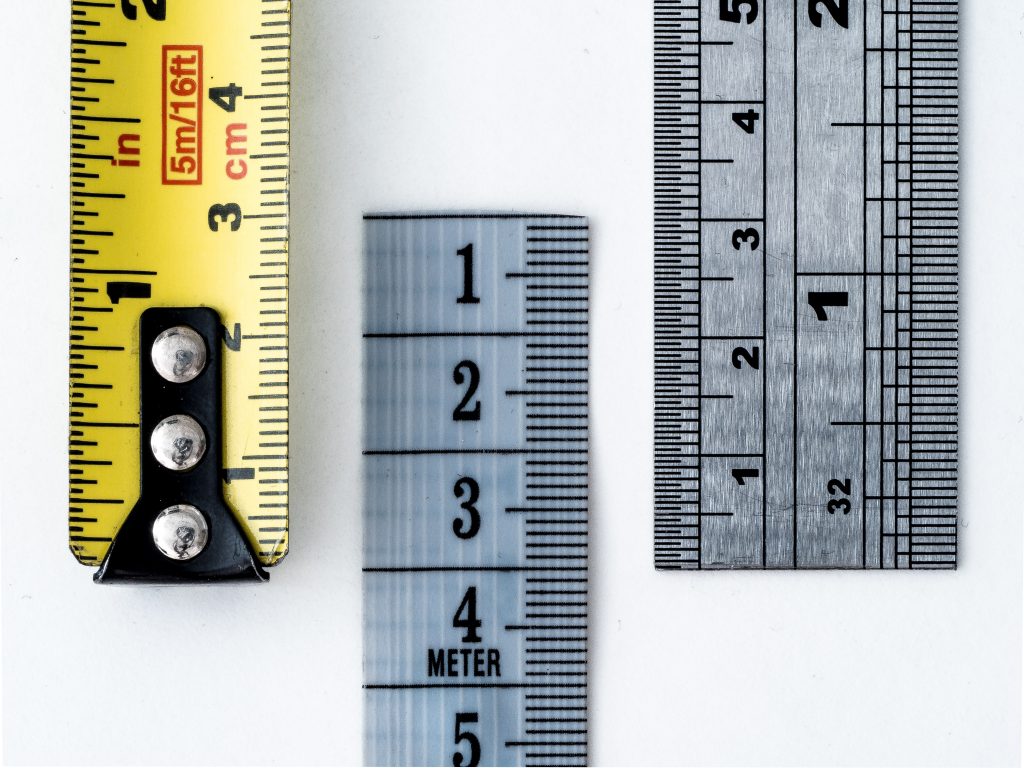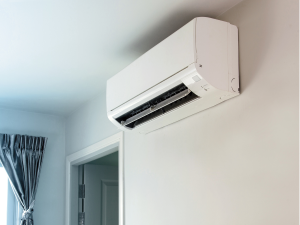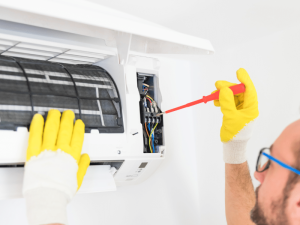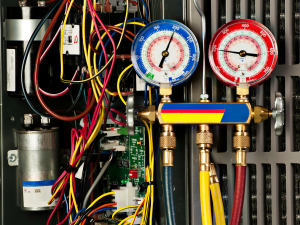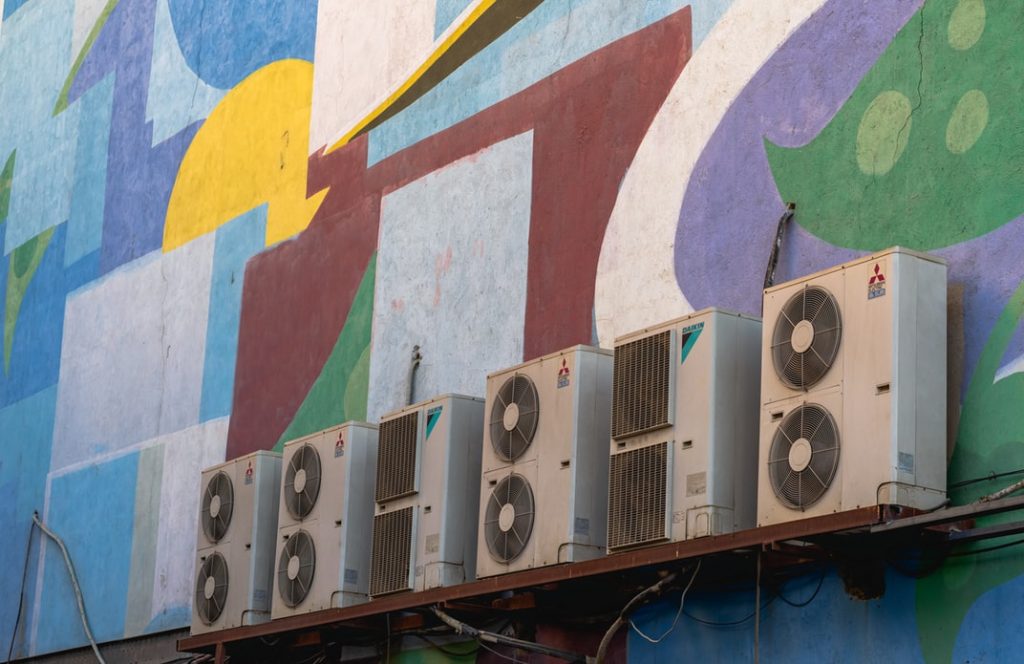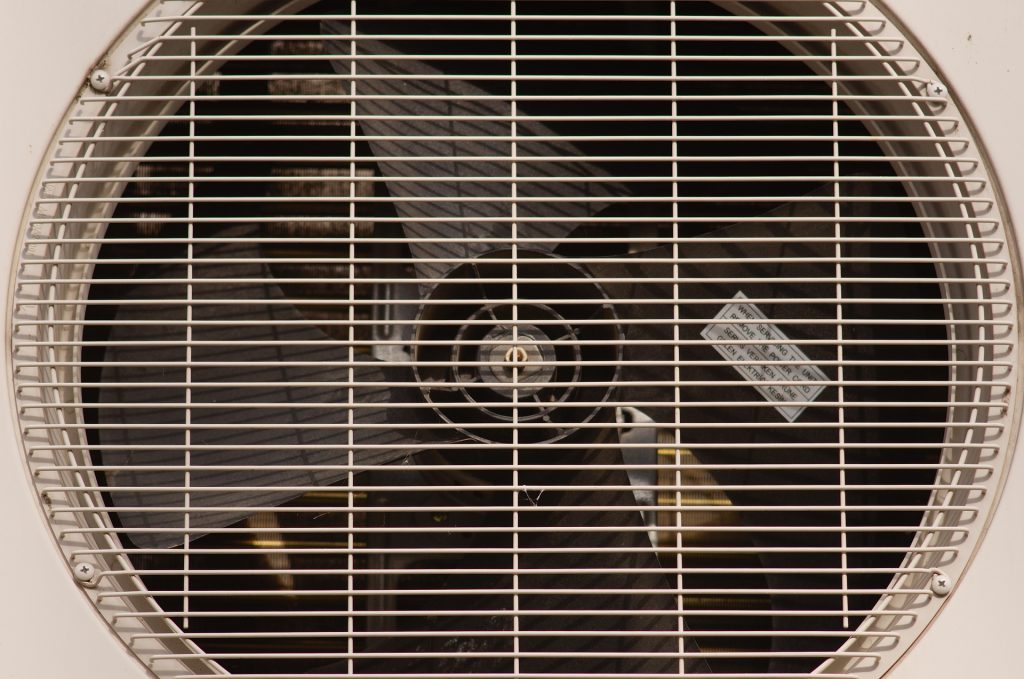What size air conditioner do I need? This is a very important question to answer correctly when shopping for a new HVAC unit. Failure to do so can result in airflow problems and other long-term effects that will cost you time and money to fix. In this post, we’ll walk you through the steps experts use to determine what size AC unit is required.
What Size Air Conditioner Do I Need?

Understanding British Thermal Units
The British thermal unit (BTU) is a metric used to represent the amount of heat it takes to raise a pound of water’s temperature by one degree. It’s a bit of an odd metric, particularly in the United States where we’ve shunned most British measurement units. Nonetheless, the HVAC industry uses BTUs to measure cooling capacity. Under this application, one BTU translates to the amount of heat an air conditioner can remove within an hour. How many BTUs you need depends on several factors, which we’ll explore next.
Calculating What Size AC Unit You Need
- Calculate your square footage.
If you’re cooling a single room, this is easy. For square and rectangular spaces, multiply the room’s length and width. For triangular spaces, add an extra step and divide the result of that calculation by two (remember, a non-equilateral triangle is just half of a square or triangle). If your room is a more complex shape, divide it into smaller triangles and squares then combine each section’s measurements.
If you’re buying an air conditioner to cool your entire home, you’ll need to repeat this process for each room then add the square footage together. Remember to only measure living spaces and exclude areas of your home you’re not looking to cool.
Note: If your house is a perfect square or rectangle, you may be able to calculate the square footage with one easy measurement. Just remember to multiply your measurement for each floor.
- Multiply your square footage by 20.
While there are many different opinions on how many BTUs you need per square foot, 20 is a good rule of thumb. Multiply your square footage calculation by 20 and you’ll have a good ballpark figure for what capacity air conditioner you need.
- Adjust based on the following factors.
While the calculations you’ve made so far have left you with a rough estimate of how many BTUs you need, there are several additional factors you need to take into account. Energy Star (a program jointly operated by the Department of Energy and U.S. Environmental Protection Agency) recommends the following.
- If your home is heavily shaded, subtract 10% of the capacity. Conversely, if your home gets a lot of sunlight (such as in Phoenix, Arizona), increase your capacity by 10%.
- If your property is occupied by more than two people at a time, increase the capacity by 600.
- If you’re purchasing an air conditioner specifically for your kitchen, add 4,000 to the capacity.
It can be difficult to gauge which of these factors apply to you. Our air conditioning services in Phoenix will be of great help if you live in the area and aren’t sure how to navigate these more nuanced calculations.
- Find an air conditioner that offers the capacity you need based on your calculations.
Once you know how many BTUs you need for the area you’re looking to cool, your next step will be purchasing an air conditioner capable of providing it. Installation is arguably best left to professionals who can determine the ideal placement of your air conditioner. Check out this post for some tips on choosing a good HVAC company in Phoenix, Arizona.
What Size Air Conditioner Do I Need For My Home? Common Misconceptions
Air conditioners are complex machines. Choosing the right capacity requires some effort and at least a basic understanding of concepts like BTUs. In light of this, there are a few misconceptions floating around as people look for shortcuts and easier methods for broaching the subject. Here are the two main ones.
Myth: A Larger Air Conditioner Can’t Hurt
The logic behind this misconception isn’t hard to understand. Some people assume that buying a bigger air conditioner than they need will mean the unit simply runs less, saving electricity and cooling your home faster. This isn’t true.
As we discussed in this post, oversized air conditioners can run intermittently and throw your home’s humidity out of wack, which negatively impacts electricity consumption and your comfort. The intermittent operation will also cause your air conditioner’s parts to wear out faster than usual.
Of course, you also have to remember that capacity is a major factor in determining how much an air conditioner costs. Going with an oversized unit will see you spending unnecessary amounts of money.
Myth: An Undersized Air Conditioner Will Save You Money
On the flip side, people in more moderate climates may mistakenly believe an undersized air conditioner will meet their needs just fine. Perhaps they’re looking to cut costs and/or keep energy consumption low.
On the contrary, undersized air conditioners have to run longer. You’ll be much better off getting an appropriately-sized unit and setting it to operate at a lower temperature if that’s what you need. Check out our other article to learn how much can an air conditioner cool.
What Size AC For My House? Conclusion
In this piece, we showed you the four steps most HVAC experts use to determine how much AC capacity is required for a residence. To summarize, you need to calculate your home’s square footage and then multiply that figure by 20. After adjusting the number for factors such as your home’s exposure to sunlight and its occupants, you’ll have a figure representing how many BTUs you need. You can then select an air conditioner that meets that capacity.
This can all be a bit tricky to figure out if you’re selecting an air conditioner for the first time. Given how much these units cost and how much of an impact they have on your health, you’ll want to get the calculation right. Don’t hesitate to contact an HVAC contractor in your area if you need assistance. If you live in the Phoenix area, we hope you’ll give American Home Water and Air a call!
Frequently Asked Questions
What size air conditioner do I need for 1,500 square feet?
Without knowing anything else about your property (such as its sunlight exposure or the number of occupants), you’ll need an air conditioner capable of providing roughly 30,000 BTUs.
What size air conditioner do I need for a 2,000 square foot house?
Once again, without knowing the full picture, you’ll need an air conditioner capable of providing roughly 40,000 BTUs.
How do I calculate what size air conditioner I need?
While there are a few different methods people use to calculate how much air conditioner capacity they need, one of the most reliable is to simply multiply your square footage of living space by 20. This will give you a figure representing how many BTUs of cooling power you need.


